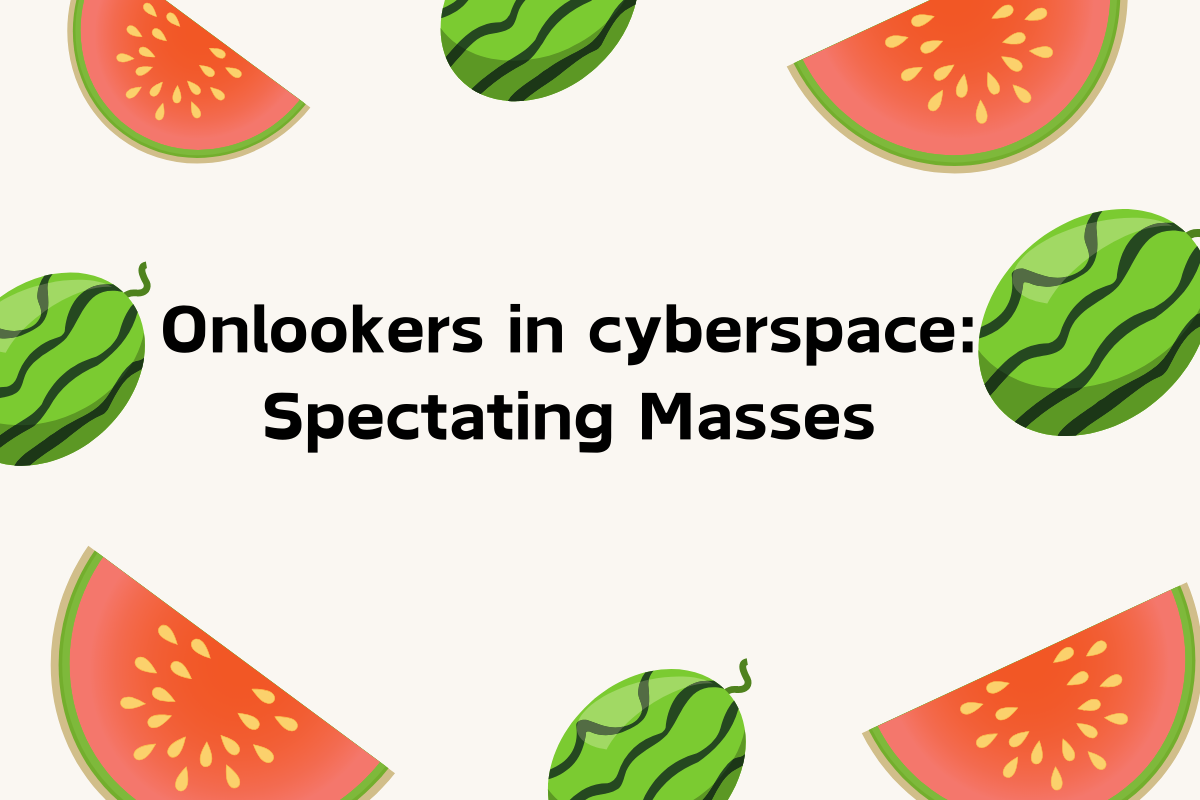Onlookers in Cyberspace: Spectating Masses-Chi Gua Qun Zhong
In today's era of social media, we often hear a term: "Spectating Masses," derived from Chinese internet culture, describing those who merely observe events without directly participating. In cyberspace, these onlookers play a unique role, sometimes even influencing the course of an event.

Who are the Spectating Masses-吃瓜群众 (chī guā qún zhòng)
The Spectating Masses are those who watch, comment on, and share events through the internet or social media but do not actively participate. They might browse popular 流行的 (liú xíng de) topics, gossip news, or watch live streams on platforms like Weibo, Twitter, Facebook, etc. Their interests often revolve around entertainment, gossip, and social hot topics rather than taking real action.
流行的 (liú xíng de), adj, popular
Examples:
- This show is very popular.
这个节目非常流行。
Zhège jiémù fēicháng liúxíng. - That celebrity is very popular.
那个明星非常流行。
nàgè míngxīng fēicháng liúxíng.

Characteristics of the Spectating Masses
- Observation and Commentary: Spectating Masses typically watch the development of events on social media and express their opinions and comments. They may speculate, joke, or criticize events, but few take concrete actions to alter the course of events.
- Sharing and Dissemination: They also spread events by reposting, sharing, or commenting. They might share interesting or trending topics with their friends or followers, thereby expanding the influence 影响 (yǐng xiǎng) of the event.
- Chasing Hot Topics: Spectating Masses often chase after trending topics, focusing on the latest gossip, celebrity scandals, or social hot issues. They may follow the development of public opinion, but few delve into researching or contemplating the reasons and impacts behind the events.
影响 (yǐng xiǎng), noun, influence
Examples:
- Her positive attitude has a great influence on her friends.
她的积极态度对她的朋友有很大的影响。
Tā de jījí tàidù duì tā de péngyǒu yǒu hěn dà de yǐngxiǎng. - Reading books can have a positive influence on children's development.
阅读书籍对儿童的发展有积极的影响。
Yuèdú shūjí duì értóng de fāzhǎn yǒu jījí de yǐngxiǎng.
Key Sentences:
- The spectating masses gathered online to follow the latest celebrity gossip.
吃瓜群众在网上聚集,追随最新的名人八卦。
Chīguā qúnzhòng zài wǎngshàng jùjí, zhuīsuí zuìxīn de míng rén bāguà. - When a scandal broke out, the spectating masses quickly joined the conversation on social media.
当丑闻爆发时,吃瓜群众迅速加入了社交媒体上的讨论。
Dāng chǒuwén bàofā shí, chīguā qúnzhòng xùnsù jiārùle shèjiāo méitǐ shàng de tǎolùn. - The spectating masses watched the live stream of the concert, enjoying the performances from the comfort of their homes.
吃瓜群众观看了音乐会的直播,在家里舒适地欣赏表演。
Chīguā qúnzhòng guānkànle yīnyuè huì de zhíbò, zài jiālǐ shūshì de xīnshǎng biǎoyǎn.